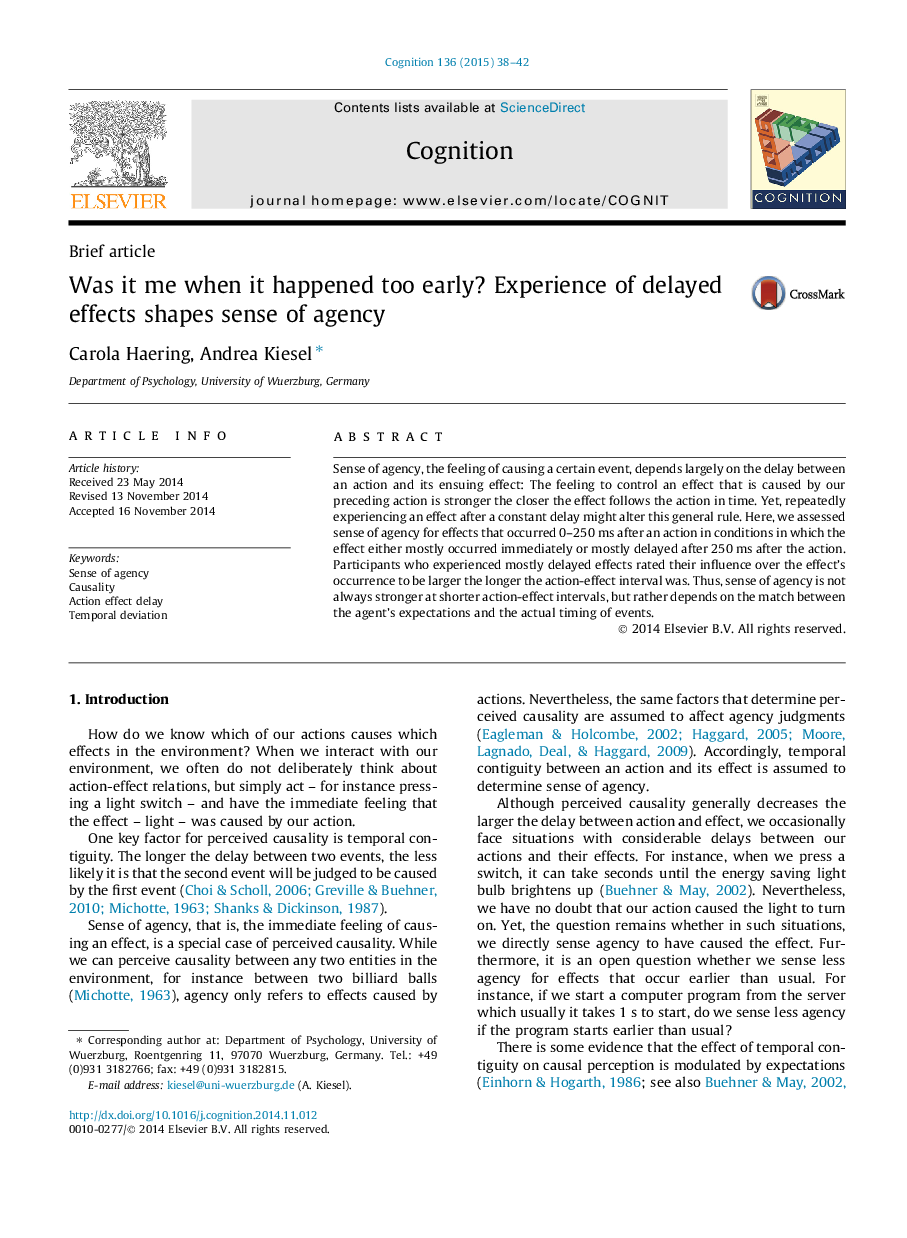| Article ID | Journal | Published Year | Pages | File Type |
|---|---|---|---|---|
| 7287436 | Cognition | 2015 | 5 Pages |
Abstract
Sense of agency, the feeling of causing a certain event, depends largely on the delay between an action and its ensuing effect: The feeling to control an effect that is caused by our preceding action is stronger the closer the effect follows the action in time. Yet, repeatedly experiencing an effect after a constant delay might alter this general rule. Here, we assessed sense of agency for effects that occurred 0-250Â ms after an action in conditions in which the effect either mostly occurred immediately or mostly delayed after 250Â ms after the action. Participants who experienced mostly delayed effects rated their influence over the effect's occurrence to be larger the longer the action-effect interval was. Thus, sense of agency is not always stronger at shorter action-effect intervals, but rather depends on the match between the agent's expectations and the actual timing of events.
Keywords
Related Topics
Life Sciences
Neuroscience
Cognitive Neuroscience
Authors
Carola Haering, Andrea Kiesel,
